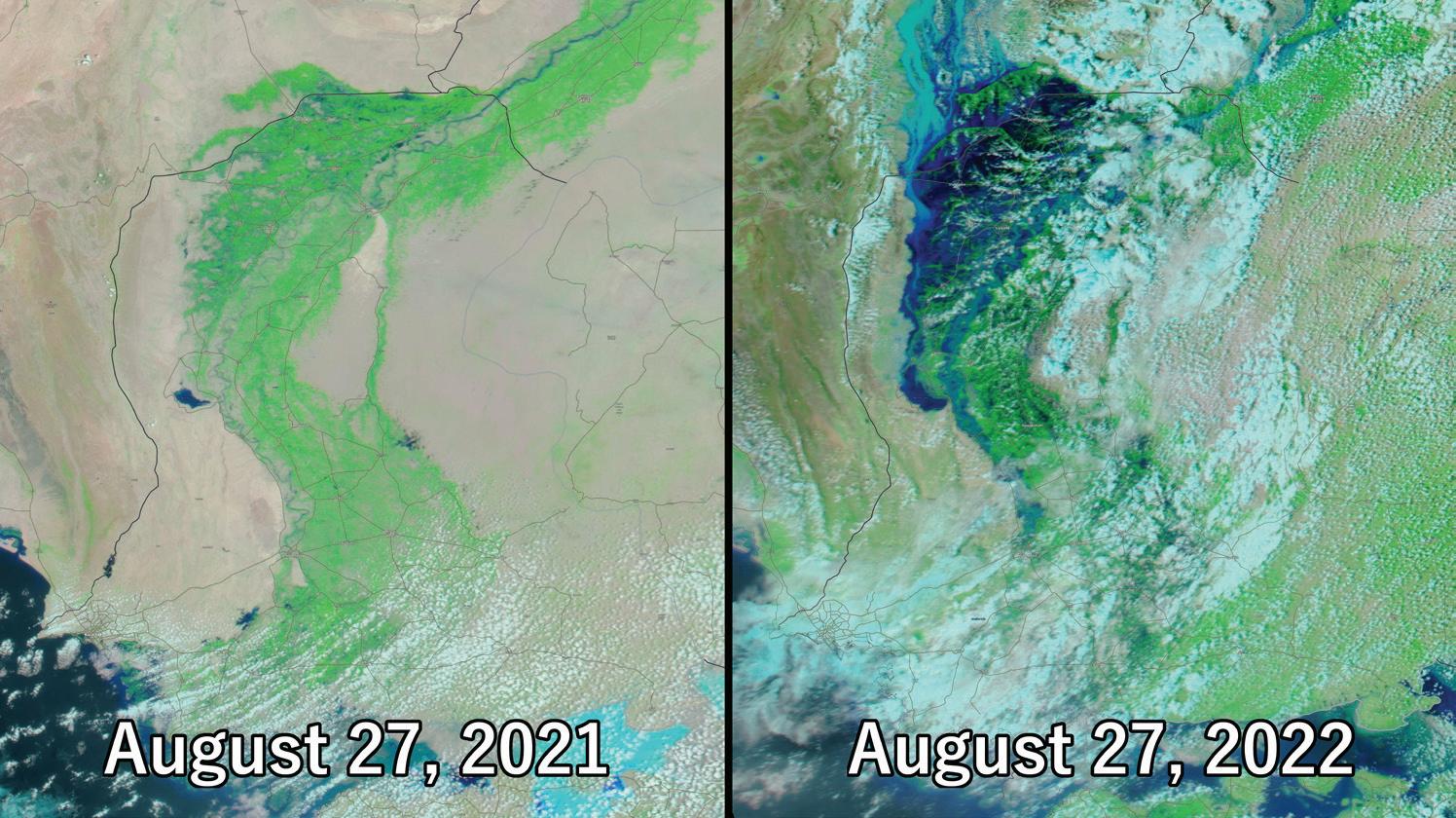
1 minute read
EFFECTS OF FLOODING
from Karachi Report
by Soyeon Jang
Floods impact life in many ways, not only drowning human lives, but leaving people homeless and breeding waterborne illnesses. The citizens of Karachi, particularly those living in informal settlements with insufficient drainage infrastructure, are facing both food and health crises brought on by the unprecedented floods spurred by climate change. Food availability in the region relies on local croplands and livestock which have been negatively impacted due to flooding. During the heavy flooding of 2022, wheat planting and the overall agricultural sector declined, with prices set to increase into the future (S&P Global, 2022).
Risks of waterborne diseases such as cholera and gastroenteritis are increasing due to flooding. The World Health Organization (WHO) has said that the surge in diseases has the potential for a ‘second disaster’. Acute diarrhea and suspected malaria has also increased in Sindh province after being hit by the floods (Hassan & Shahzad, 2022). Damaged health facilities due to extreme weather events are worsening the situation and remaining facilities are overwhelmed, leaving people without adequate treatment.
Advertisement
We’re in a very dire situation. There’s no buffer stocks of wheat, there’s no seeds because farmers have lost them
(Palakrishnan, 2022)
The biggest challenge we are facing is because of malaria and gastroenteritis. We don’t have enough protective nets or medical kits to detect malaria. Relief organizations and the government are regularly supplying us with required material but the magnitude of the problem is just so huge
(Amjad Mastoi, 2022)
Flooding in Karachi has resulted in a substantial loss of life as well as displacing residents from their homes. With climate change worsening every year, dramatic weather events such as heavy rainfall and heat waves will become the new normal. Residents will have to adapt to worsening floods that crumble infrastructure and exacerbate issues such as food security and waterborne diseases.
Infrastructure and the built environment do not have enough time between extreme climate disasters to better prepare for the next leaving communities worse off. Karachi’s government needs to step in and support existing communities, so they can be better prepared for the estimated growth of the future.








